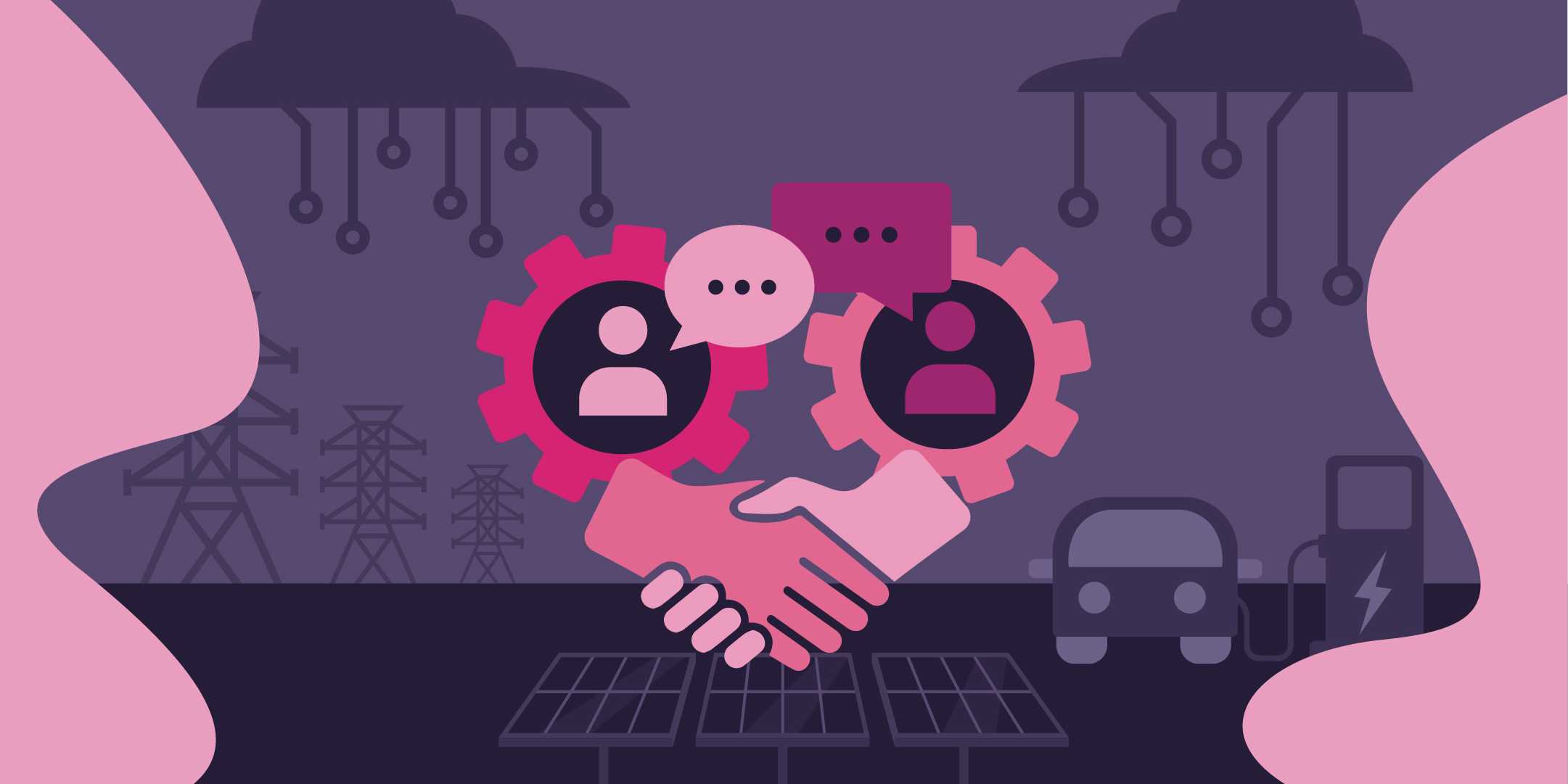Five questions to: Emmanuelle David (graduate 2021 CAS ETH in Technology and Public Policy: Policy Process)
"Inspired by the best": we are taking a closer look at what we claim to be. What are the sources of inspiration in continuing education? This time with Emmanuelle David, Managing Director of eSpace (EPFL Space Center) and graduate of the CAS ETH in Technology and Public Policy: Policy Process (2021). For her, the CAS has helped her to better understand the Swiss landscape in terms of the policy environment.

Interview with Emmanuelle David
School for Continuing Education: Who or what inspires you?
Emmanuelle David: Obviously I am inspired by space and the bright minds I am working with. In particular, our activities involve solving problems via cutting edge technologies, international cooperation and humans working together. Being in a university and managing a team of talented professionals, I am inspired daily when I see students and colleagues achieving their goals, and their dedication to doing more together.
You completed your studies at the University of Technology of Compiègne (UTC) and the Technical University (TU) Braunschweig. Why pursue continuing education at ETH Zurich now?
After I graduated in 2010, I had the opportunity to serve as a young graduate trainee at the Washington Office of the European Space Agency in the USA. I did some technology watch (in the sense of monitoring technological developments), attended congressional hearings, and met with lobbyists, industry players and NASA. After this experience it became clear to me that I wanted to get hands-on experience as an engineer to better under-stand the challenges of the industry from several perspectives, but also that in the long term I wished to pursue science and technology policy. After ten years in the industry, and with my new position at external page eSpace (the EPFL Space Center), I felt it was the right moment to pursue continuing education.

Emmanuelle David is the executive manager of external page eSpace – the EPFL Space Center at the Ecole Polytechnique Fédérale in Lausanne. eSpace is an interdisciplinary unit responsible for space activities at the school, which hosts a research initiative on sustainable space logistics and the Space Sustainability Rating.
She has ten years’ experience in space transportation in academia, agency and industry, ranging from pre-development projects to launch operations. She holds Space Engineering degrees from both the University of Technology of Compiegne, France and the Technical University of Braunschweig, Germany. In 2021 she completed the CAS ETH in Technology and Public Policy: Policy Process.
What was your experience of the exchange between students and lecturers at ETH Zurich?
I had a very good relationship with the students. Even though we conducted the pro-gramme during COVID waves, we managed to have a few on-site sessions. The working groups with the other students gave me different perspectives on each topic and also allowed me to hear how they solved problems I might face. I appreciated the classes with the teachers as well. It was great to get a sense of what is happening in research on space and technology policy, and I saw real examples of how it applies to my daily work. We also had specific sessions and workshops with practitioners and could relate theory to practice.
You are the Executive Director of the EPFL Space Center (eSpace). How and where can you deploy the content of the CAS ETH TPP: Policy Process in your daily work?
First, the CAS ETH TPP helped me to better understand the Swiss landscape in terms of policy environment. I also really appreciated the modules on stakeholder management. At eSpace we work with researchers, policy makers and industry players, but most of all we are at the service of citizens and society. The modules helped me find concrete ways to move forward. Finally, I was also given great tools to better understand the literature related to science and technology processes in my field. At eSpace we work on the topic of space sustainability, and thanks to the programme I could also link our work to the broader concept of sustainability.
This seems to be a heady moment in the field of space travel: an inspiring environment to be in. As a woman, how are you experiencing this in a domain which was and continues to be dominated by men?
Like everyone working in this industry I am passionate about space and my job. I would say that on a daily basis I have never felt much different from my colleagues: we are all idealists and dreamers. However, from what I’ve seen, because we are so dedicated sometimes we are also ready to spend our free time on our passion, limiting time with our families. In our society, women are still expected to take on most of the workload at home, and it is very difficult to overcome that challenge. This obstacle is not visible in the work-place itself, but it is very real. I have experienced it myself, especially with the birth of my two kids.
More information about the CAS ETH in Technology and Public Policy: Policy Process